- AI x Wellbeing Brief
- Posts
- Issue No. 1: AI oracles, smart clothing, & using chatbots for mental health
Issue No. 1: AI oracles, smart clothing, & using chatbots for mental health
People feel more open with chatbots than therapists. Plus: Alzheimer’s breakthroughs, schools with AI teachers, and AI oracles in China.
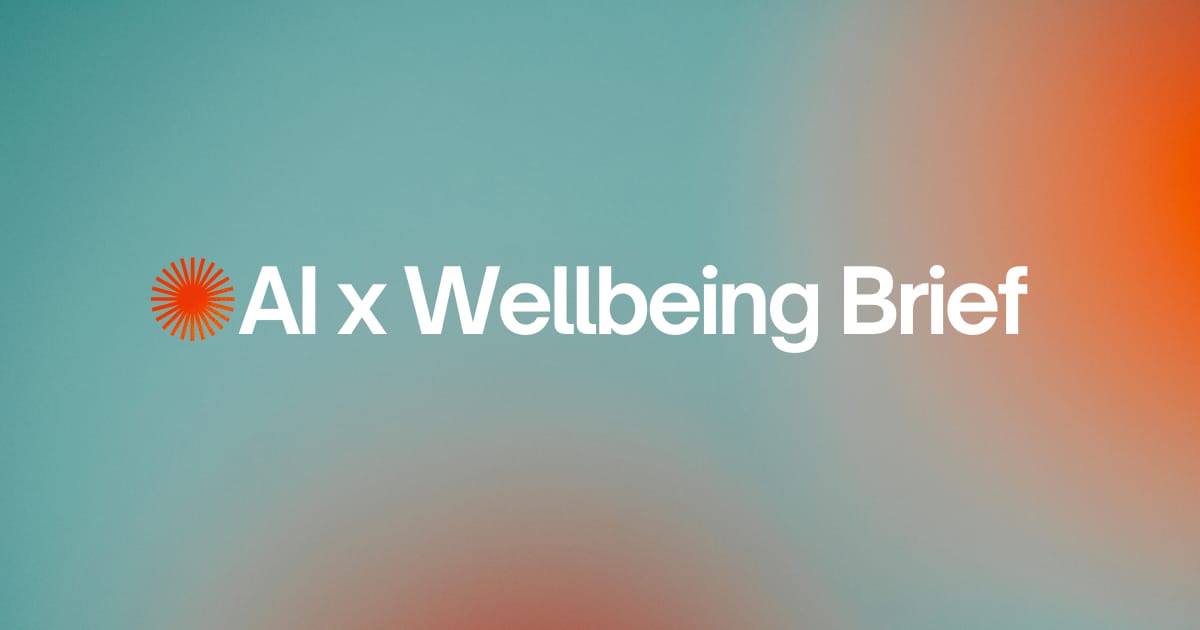
👋 Hi! Dana here. Welcome to the very first issue of AI x Wellbeing Brief, my free weekly newsletter exploring how AI is influencing our mental, physical, social, and spiritual wellbeing. My hope is to not only keep you in the know about the latest breakthroughs and trends, but also surface real stories about how AI is impacting peoples’ holistic health and lived experiences.
As with much in life, the answers aren’t always black or white, and impact can deviate from intent. That’s why this newsletter comes from a place of deep curiosity and care for the human experience- sometimes critical, but always hopeful.
I’m so glad you’re here! Let’s get into it:
In today’s edition:
🔸MIT Media Lab calls to put human flourishing at the heart of AI
🔸How people are using AI chatbots for mental health
🔸AI-powered smart clothing is coming
🔸NY state tests AI companion for the elderly
🔸AI reveals hidden cause of Alzheimer's
🔸Schools are experimenting with AI teachers
🔸AI fortune telling is all the rage in China
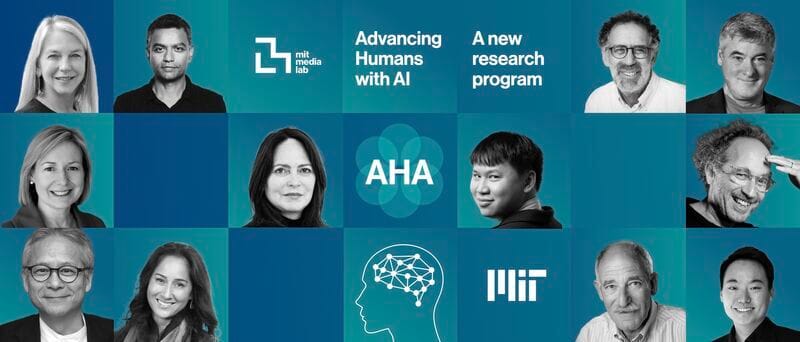
Source: MIT Media Lab
TL;DR: MIT Media Lab just launched a new initiative to tackle one of AI’s most important questions: How can we design AI not just for efficiency, but for human flourishing?
To know:
The Lab’s new Advancing Humans with AI (AHA) program aims to reorient AI development toward supporting long-term mental, emotional, and social wellbeing.
It challenges the industry’s narrow focus on scale and speed, urging developers to prioritize AI that cultivates wisdom, resilience, reflection, and connection.
MIT sees AHA not as an anti-AI movement, but as a design mandate: Build systems that help us thrive, not just compute.
The initiative is grounded in six research domains of concern: Comprehension & Agency; Mental & Physical Wellbeing; Curiosity & Learning; Creativity & Expression; Sense of Purpose; Healthy Social Lives.
To ponder: Most AI today is built for speed, efficiency, and profit- not long-term wellbeing. And we’re already seeing the cracks: emotional dependence on chatbots, diminished critical thinking, and social isolation. Social media was supposed to connect us, but we’re more polarized and lonely than ever. A recent (unauthorized!) experiment on Reddit showed AI-generated posts were 3–6x more persuasive than human ones…and no one noticed they were bots.
Yes, AI is powerful. It’s exciting. It’s building billion-dollar businesses. But to me, the real measure of success is simple: Does it help us truly thrive? And how can we best use AI to alleviate human suffering, not add to it? Human flourishing is the real KPI.
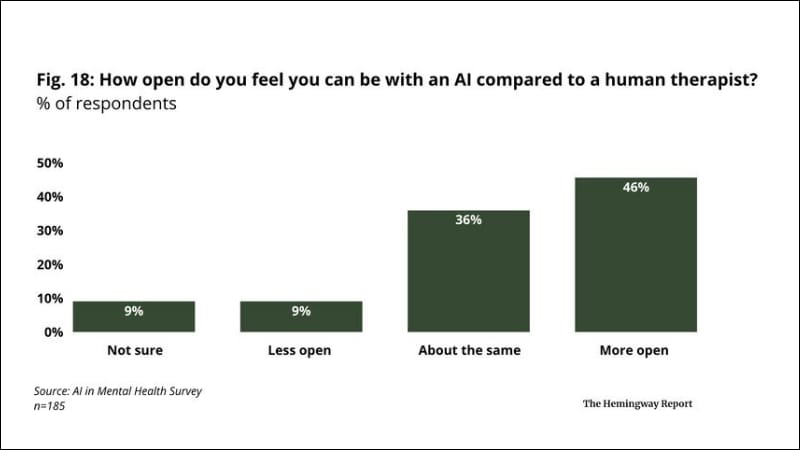
Source: The Hemingway Report
TL;DR: New research from The Hemingway Report reveals just how quickly AI chatbots have become a go-to mental health tool. Many users are turning to general-purpose bots like ChatGPT, citing 24/7 availability and lack of judgment as top reasons. But the findings also raise red flags about safety, effectiveness, and the emotional gap AI can’t fill.
To know:
41% of respondents reported having used a conversational AI agent for mental health support.
81.5% of those who use AI for mental health are relying on general-purpose AI chatbots not specifically designed for therapy (e.g. ChatGPT or Claude).
46% said they feel more comfortable opening up to an AI than a human therapist, often sharing taboo or deeply personal topics they wouldn’t say out loud in therapy.
To ponder: HBR recently reported that therapy and companionship are now the top use cases for Gen AI. This massive adoption speaks volumes about the huge unmet need for access to safe, stigma-free, on-demand support. But general-purpose AIs aren’t trained clinicians, and their replies can be inaccurate, insensitive, or even harmful— take last week’s Rolling Stone story about vulnerable users being driven into “ChatGPT-induced psychosis.”
There are also real privacy concerns: As more AI tools introduce shopping features (like ChatGPT's new integrations), there’s growing unease around how emotional and personal data might be used to target users. Just some things to keep in mind before you share your deepest, darkest secrets.
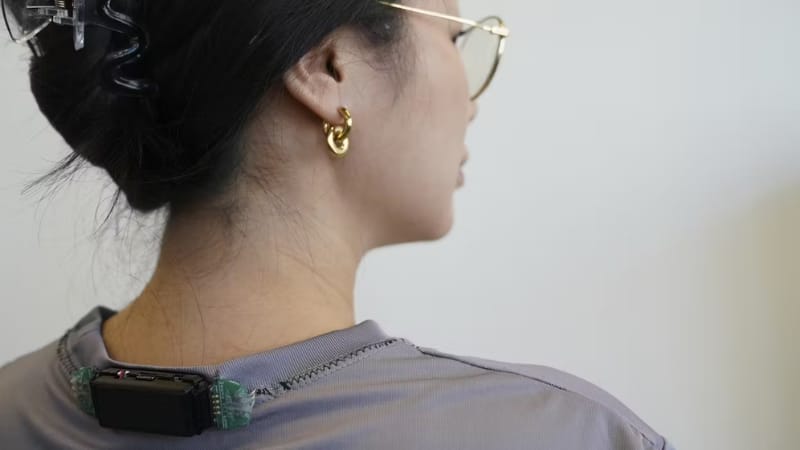
Source: Louis DiPietro / Cornell University
TL;DR: Cornell researchers have developed smart clothing that uses AI to track your posture and movement, without any cameras or bulky devices.
To know:
The new technology, called SeamFit, uses flexible conductive threads sewn into the neck, arm, and side seams of a standard short-sleeved T-shirt.
Unlike wearables, it doesn’t require charging or calibration, and it works just by sensing how the fabric bends and stretches on your body.
The AI pipeline can detect movements, identify specific exercises and count reps.
It’s part of a broader push to make AI-enhanced wellness tools more seamless, discreet, and accessible, and could eventually be used in physical therapy, fitness coaching, or ergonomic support.
To ponder: Smart clothing may still be in its infancy, but I wouldn’t be surprised to see a brand like Nike piloting this with elite athletes in the next few years. Professional athletes are often the earliest adopters of performance-enhancing tech, and what starts with them trickles down to the rest of us. If AI-powered fabrics can deliver precise, personalized feedback without bulky gear or constant screen time, it could transform everything from workouts to physical therapy.
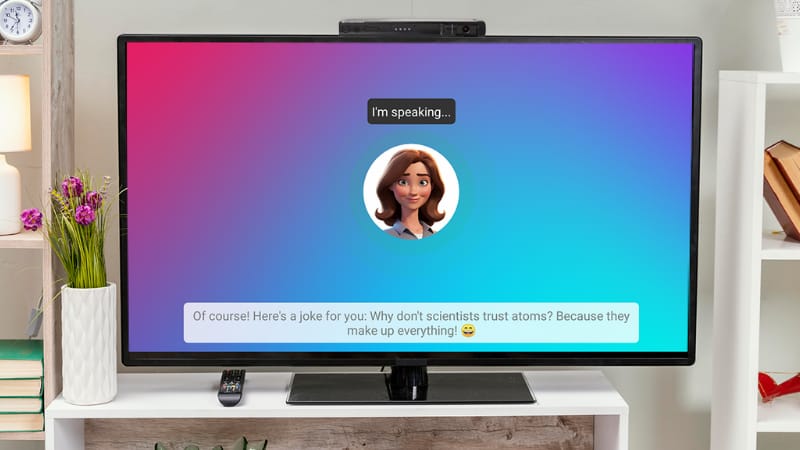
Source: ONSCREEN
TL;DR: A new pilot program in NY is introducing "Joy," an AI-powered virtual companion that turns seniors' TVs into interactive hubs with chats, medication reminders, and games to combat loneliness and support caregivers.
To know:
Joy is an AI companion developed by ONSCREEN, Inc., designed to engage seniors through daily conversations, memory games, cognitive exercises, and virtual art sessions, all accessible via their television.
The system provides real-time updates to caregivers, including medication reminders and auto-answered video calls, eliminating the need for additional apps or logins.
The initiative aims to alleviate caregiver stress and address loneliness among seniors—a condition linked to serious health issues like high blood pressure, dementia, and depression.
To ponder: My initial reaction to this was a mix of sadness…and understanding. It's disheartening that so many seniors experience loneliness and lack sufficient support. I was reminded of this recent article about AI services that call your elderly parents for you, and how the author and his mom said it felt kind of dystopian.
But I get it. Caring for my mom during her journey with Alzheimer's was the hardest thing our family has gone through, even with the support of dedicated caregivers. The reality is, we're facing a significant caregiver and companion shortage, and those services are often very expensive. Maybe using AI to keep seniors engaged, safe, and even have some fun, can be something else to add to our toolbox.
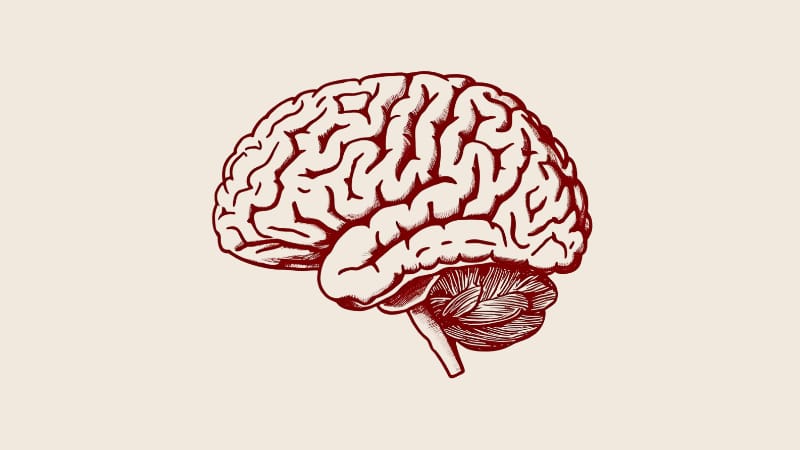
Source: Canva
TL;DR: Researchers at UC San Diego used AI to identify a gene's previously unknown function. This surprising new insight into the development of Alzheimer’s might also lead to a potential treatment that could be taken as a pill.
To know:
Scientists used AI imaging to discover that a common protein (PHGDH) has a hidden ability to interfere with brain cell functions, which leads to early signs of Alzheimer’s.
An existing compound, NCT-503, can stop that harmful protein behavior while allowing it to continue its normal functions in the body.
The compound showed promising results in mouse trials, and unlike existing infusion treatments, the new drug could be taken as a pill to prevent damage before it occurs.
To ponder: AI and quantum computing are set to accelerate medical research in ways previously thought impossible. Instead of taking years or decades to connect the dots, AI can analyze vast molecular data sets, simulate interactions, and surface overlooked patterns. As well, Wired reported that OpenAI has been meeting with the FDA to discuss a project called cderGPT that would use AI to speed up drug trials. (It can currently take over 10 years for a drug to come to market in the US.) Do you think we’ll see a treatment for Alzheimer’s in our lifetime?
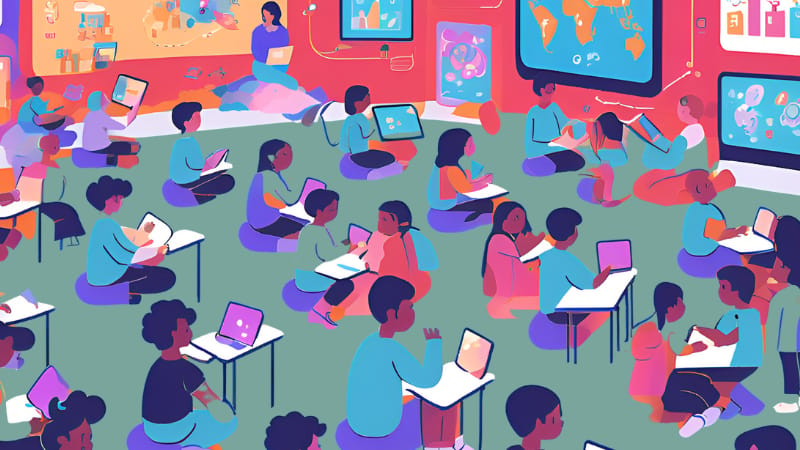
TL;DR: Alpha School, a private school in Brownsville, TX, is pioneering a model where students complete a full day's academic instruction in just two hours using AI tutors.
To know:
Alpha School employs AI tutors to deliver customized curriculums and personalized instruction, allowing students to progress at their own pace.
The school promises students will learn twice as fast as their peers in just two hours of instruction per day, and the private chain is expanding its network to New York City, Houston, and Phoenix.
The rest of the school day is spent on life skills, physical activity, creativity, and social-emotional learning.
Educators at Alpha describe themselves as "guides," helping students navigate learning goals, rather than lecturing at the front of the room.
Supporters say AI can free teachers to focus on the human side of education, while critics warn this model could be used as a cost-cutting measure, especially in public education systems.
To ponder: With the White House naming AI literacy a national priority, edtech is back in the spotlight. I love the idea of more personalized learning and freeing up time for creativity, physical movement, and life skills. But I’m cautious: if AI becomes the default for instruction, will public schools have the resources to invest in the human side too, or will they stop at efficiency? Not every student thrives in self-paced, screen-mediated learning; some need structure, hands-on support, or simply a teacher who sees them.
It’s also worth noting that about half of Alpha Brownsville’s students are children of SpaceX employees who can afford the $10K tuition—a very different reality than most public schools navigating budget cuts and equity gaps. We’ve seen this before with the rollout of Chromebooks: promising in theory, but often widening the gap in schools that lacked the infrastructure to make them truly work.

Source: Canva
TL;DR: AI has become a popular digital oracle for young people seeking BaZi fortune-telling—a centuries-old Chinese spiritual practice.
To know:
AI-powered BaZi readings via DeepSeek have gone viral across Chinese social media, especially among disillusioned young adults facing economic uncertainty and emotional burnout.
BaZi, or the Four Pillars of Destiny, is a centuries-old Chinese divination system that uses a person’s birth date and time to analyze elemental forces—wood, fire, earth, metal, and water—and predict key life themes.
Traditionally read by skilled masters, its logic-based framework makes it uniquely compatible with AI, allowing DeepSeek to generate eerily specific advice that feels both mystical and structured.
Some users have reported disturbing readings (e.g. multiple failed marriages, illness, or violence), and researchers warn against mistaking AI logic for human insight.
To ponder: The rise of AI fortune-telling isn’t unique to China. In the U.S., 70% of people believe in astrology, and in India, 60% of InstaAstro users are Gen Z. Since Covid, interest in astrology, numerology, and tarot has surged: The global astrology app sector is projected to reach $12B by 2029, growing at a staggering 22.87% CAGR.
The human longing for clarity and guidance is timeless and universal. In moments of uncertainty, we all want something to believe in, something that helps make sense of the chaos. But like any tool or external advice, there’s always the risk of overreliance and outsourcing our inner knowing instead of strengthening it. I’m curious: What rituals, tools, or technologies do you turn to when life feels overwhelming?
FIELD NOTES
More AI x Wellbeing stories
🦄 Healthy unicorns: Nearly 50% of new AI unicorns are health-related, as investors double down on diagnostics, wearables, and personalized care.
👓️ Will your glasses self-adjust?: A company called IXI is working to bring AI-powered, auto-focusing prescription glasses to everyday life.
🐶 Healthy pets: Mars just launched a suite of AI tools to help pet parents detect dental health issues early and personalize care at home.
📊 Evidence vs hype: The Medical Futurist analyzed 20 AI use cases in healthcare, calling out what's real, what's overhyped, and what’s actually improving outcomes.
🤖 Grind culture: Lots of AI startup founders are working 7 days a week, fueled by a gold rush mindset and a fear of falling behind.

Source: DigitalWellnessDay.com
ICYMI: Make sure to check out the replay of this year’s Digital Wellness Day Summit. From actionable insights into building a balanced digital culture, to diverse perspectives from Gen Z advocates to AI visionaries, tune in and be a part of a movement that has already reached 17 million people in 64 countries. *Note: There is a one-hour break between panels to support tech-life balance.
Panel 1: Why Digital Culture Matters
Panel 2: Young Voices
Panel 3: AI & Digital Well-Being
SOCIAL COMMENTARY
Clinician pushback: Many clinicians are frustrated with AI mental health companies, a perspective rarely covered in mainstream media but increasingly visible on LinkedIn. Mental health professionals are speaking out about being sidelined in the AI hype, often asked to share their expertise for little or no pay, while warning that insurers might move to “bot-first” models to cut costs.
Reddit AI mental health mega thread: If you want a pulse check on how real people are using and feeling about AI for mental health, this Reddit megathread is a good place to start.
AI friends are a good thing actually: Rex Woodbury from Digital Native makes the case that AI friendships aren’t dystopian, and they might actually be the most human tech we’ve built yet.
That’s it for now! Have a tip, question, or want to sponsor? Just hit reply to this email.
Until next time,
Dana
P.S. Feel free to connect with me on LinkedIn!
If you were forwarded this email, you can subscribe here.
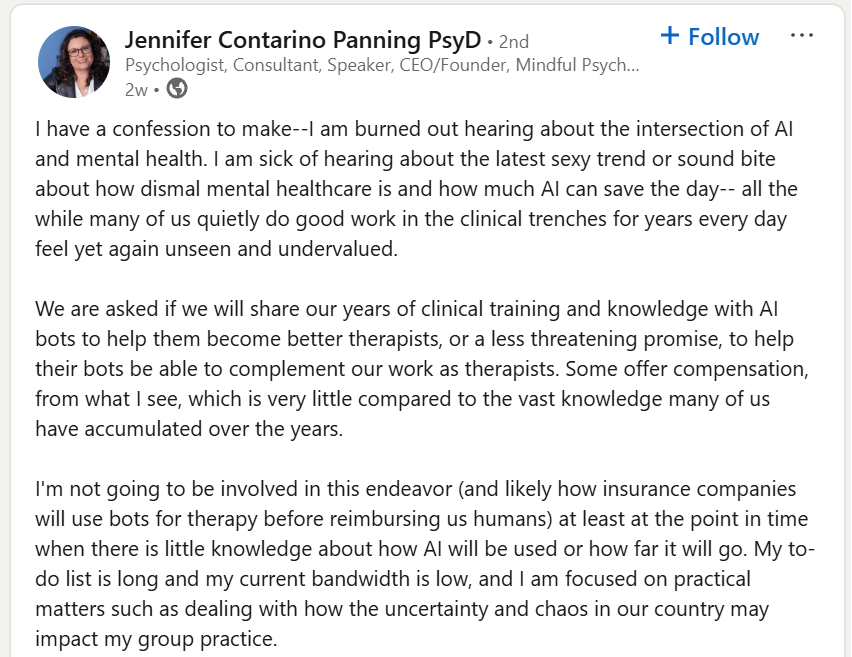
Reply